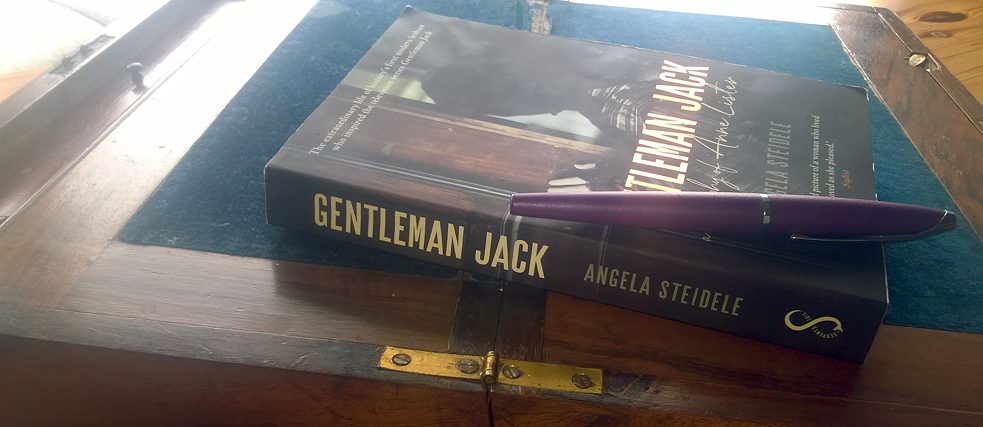May 2019
Gentleman Jack: We were always here

A heady dose of Victoriana, the thrilling lure of the theatre, and queer romance: I don’t know why it took me so long to discover Sarah Waters’ Tipping the Velvet for myself. Once I finally picked it up, I was hooked. Waters’ debut novel follows its heroine, Nan, in a picaresque romp through London’s subcultures – from the world of the music halls via some upper class Sapphists to Bethnal Green’s socialists. Waters grounds her page-turner in thorough historical research, allowing the reader, like Nan, to see that communities of women who love women have always existed.
A similar recognition shines through in Gentleman Jack, Angela Steidele’s biography of Anne Lister (tr. Katy Derbyshire), an iconic figure for both lesbian and genderqueer communities. Anne (1791 – 1840) flouted gender norms, taking on roles typically reserved for men. She also not only had numerous relationships with women, but recognised these as just as valid as those society condoned. A blue plaque was recently unveiled at the church where Anne and her wife, Ann Walker, sealed their union, and a new HBO and BBC series dramatises Anne’s life; as Derbyshire has pointed out, the Yorkshire-woman is having something of a moment right now. (An aside: Derbyshire’s translation is remarkable for its seamless integration of an immense number of quotes – never an easy feat.)
The story of how the biography came to be is fascinating in its own right. Lister was an obsessive diarist, much to the chagrin of various lovers whom she neglected in favour of her journals. She developed a private code to write about taboo topics while still in her teens and would begin each diary entry “with whether and with whom and how often she had sex the previous evening.” Fast-forward sixty years and her nephew discovers the diaries, is fascinated by their wealth of local history and begins to decode the encrypted sections. Realising that these were “entirely unpublishable” in Victorian England, John Lister hid the diaries behind fake panelling, where they were only re-discovered decades later.
The details of Anne’s life which have emerged as a result are remarkable and occasionally hilarious. Anne insisted on learning Greek, for example, partly because she realised that classical literature acknowledged desire in all its forms – and she read this erotic poetry “as intended … with one hand”. As Steidele recognises, Anne’s relationships were enabled by regency society’s obsession with virginity:
“Early nineteenth-century society … thought girls were best protected from male seduction by a close female friend, who would engage their hearts and occupy their beds.”
Anne took full advantage of this blind spot and spent much of her life courting a number of “close female friends” – often at the same time.
We should be cautious when idolising this pioneering figure though. Anne repeatedly manipulated the women who clearly doted on her; Steidele makes the case for Anne’s first girlfriend, whose incarceration Anne supported, being the inspiration for Bertha Rochester. She was also of her time in many ways – a firm believer in social hierarchy and a proponent of corporeal punishment.
Nonetheless, Anne’s celebration of queer female desire is of huge significance for a community which continues to be written out of history. And politics aside, as Steidele admits, “all the sex in old-fashioned language was just too delightful”.